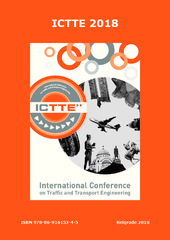Приказ основних података о документу
Enhancing the financial feasibility of PPP projects with hybrid funding
| dc.creator | Mladenović, Goran | |
| dc.creator | Queiroz, Cesar | |
| dc.date.accessioned | 2019-04-30T13:24:19Z | |
| dc.date.available | 2019-04-30T13:24:19Z | |
| dc.date.issued | 2018 | |
| dc.identifier.isbn | 978-86-916153-4-5 | |
| dc.identifier.uri | https://grafar.grf.bg.ac.rs/handle/123456789/1614 | |
| dc.description.abstract | In transport infrastructure concessions, the sources of revenue to the private partner (or concessionaire) may include (i) the infrastructure users (e.g., tolling, in the case of roads), (ii) the government (e.g. through availability payments), and (iii) both users and government, which might be called a hybrid concession. An example of the latter is a road concession where the concessionaire is allowed to charge tolls to the road users but, because of relatively low revenues, the government agency might have to complement the toll revenue. This paper summarizes the cases where it may be justified for the government to complement users revenues and describes a model developed for the financial assessment of road concessions involving both tolling and government payments. The methodology described for roads can also be applied to other forms of transport infrastructure. A practical application of the model is demonstrated in the paper. For example, given traffic volumes and maximum acceptable toll rates for a particular road project, the model can be used to estimate the minimum availability payment that would be required for the project to attract private sector interest, that is, potential bidders in a competitive bidding scenario. The model can also be used to carry out sensitivity analyses of the impact of key input parameters on outputs such as the investors return on equity and annual debt service cover ratio. | en |
| dc.publisher | City Net Scientific Research Center Ltd. Belgrade, Belgrade | |
| dc.relation | info:eu-repo/grantAgreement/EC/H2020/769638/EU// | |
| dc.rights | openAccess | |
| dc.rights.uri | https://creativecommons.org/licenses/by-nc-nd/4.0/ | |
| dc.source | International Conference on Traffic and Transport Engineering ICTTE, September 27-28th, 2018 Belgrade, Serbia | en |
| dc.title | Enhancing the financial feasibility of PPP projects with hybrid funding | en |
| dc.type | conferenceObject | |
| dc.rights.license | BY-NC-ND | |
| dc.citation.epage | 599 | |
| dc.citation.other | : 592-599 | |
| dc.citation.spage | 592 | |
| dc.identifier.fulltext | https://grafar.grf.bg.ac.rs//bitstream/id/3599/1612.pdf | |
| dc.identifier.rcub | https://hdl.handle.net/21.15107/rcub_grafar_1614 | |
| dc.type.version | publishedVersion |

